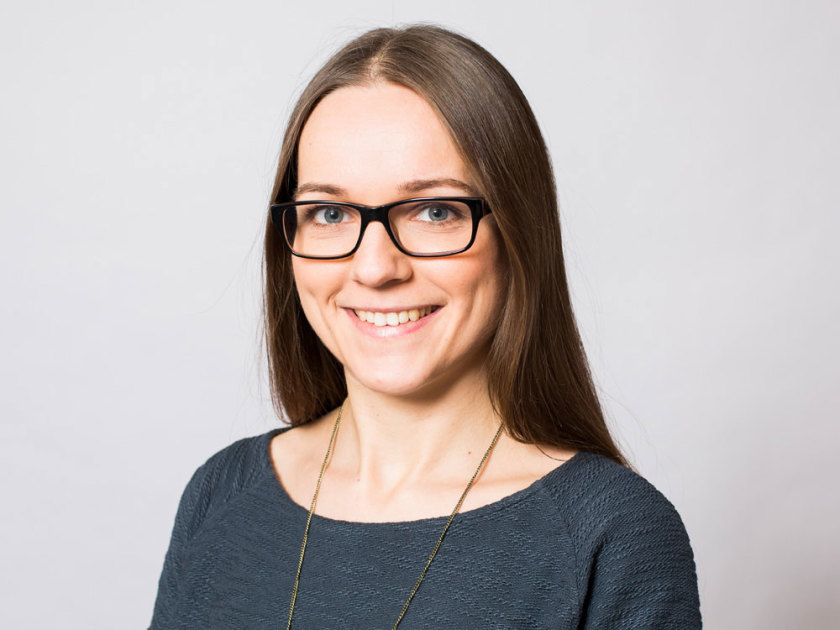Helmholtz Virtual Institute MiCo: Article selected as journal highlight for 2017

First author is the mathematician Sibylle Bergmann, whose PhD work is funded by MiCo. © WIAS
The Helmholtz Virtual Institute MiCo offers a platform through which the Helmholtz-Zentrum Berlin conducts joint research with universities and other partners on the topic of microstructures for thin-film solar cells. The journal Modelling and Simulation in Materials Science and Engineering recently selected an article produced through MiCo as the highlight of those published by the journal during 2017.
The paper deals with the modelling of liquid/solid interface kinetics in silicon, the most common material used for solar cells. First author is mathematician Sibylle Bergmann, a researcher at the Weierstrass Institute who is funded by the Helmholtz Virtual Institute MiCo (Microstructure Control for thin-film solar cells).
The scientific article was evaluated by the reviewers as outstanding and was retrieved over 900 times, a particularly high number for a technical article from this subject area. The publication is available through Open Access.
Published in Modelling and Simulation in Materials Science and Engineering: „Anisotropic Solid–Liquid Interface Kinetics in Silicon: An Atomistically Informed Phase-Field Model“; S. Bergmann, K. Albe, E. Flegel, D. A. Barragan-Yani & B. Wagner
DOI: 10.1088/1361-651X/aa7862
More information on Helmholtz Virtuelle Institut "Microstructure Control for thin-film solar cells"
arö
-
Clean cooking fuel with a great impact for southern Africa
Burning biomass for cooking causes harmful environmental and health issues. The German-South African GreenQUEST initiative is developing a clean household fuel. It aims to reduce climate-damaging CO
2 emissions and to improve access to energy for households in sub-Saharan Africa.
-
Quantsol Summer School 2024 - Call for Application
Registration for Quantsol is now open!
The International Summer School on Photovoltaics and New Concepts of Quantum Solar Energy Conversion (Quantsol) will be held in September 1-8, 2024 in Hirschegg, Kleinwalsertal, Austria. The school is organised by the Helmholtz-Zentrum Berlin and the Technical University of Ilmenau. Applications can be submitted through the school’s homepage until Friday 31st of May 2024, 23.59h CET.
-
A simpler way to inorganic perovskite solar cells
Inorganic perovskite solar cells made of CsPbI3 are stable over the long term and achieve good efficiencies. A team led by Prof. Antonio Abate has now analysed surfaces and interfaces of CsPbI3 films, produced under different conditions, at BESSY II. The results show that annealing in ambient air does not have an adverse effect on the optoelectronic properties of the semiconductor film, but actually results in fewer defects. This could further simplify the mass production of inorganic perovskite solar cells.
